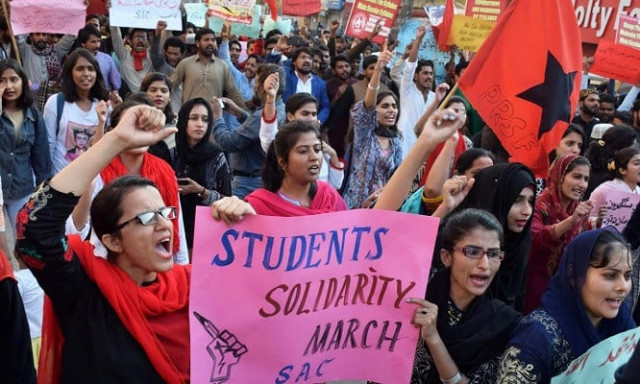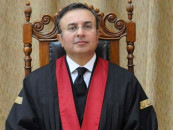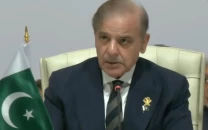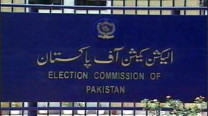No student unions despite revival law
Thousands of student protestors have been met with FIRs and harassment without proper representation

The Sindh government’s decision to lift the ban on student unions, that came some four months ago, had served some hope to the province’s students who had been longing for representation for four decades.
They believed the landmark legislation would help in undoing some of the damage that had been caused in the forty-years that student federations were forced to remain absent from the scene, while also shaping the future of student leadership.
However, the lack of implementation that has followed the said legislation, appears to have come as a rude awakening for the province’s student body that had been pinning its hope on the reformed law.
Owing to this, various student issues, such as unfair tuition fee hike, lack of facilities like transportation, boarding rooms and drinking water, in addition to harassment cases and anti-terrorism FIRs lodged by intuitions against protesting students, have once again started to pile with no outlet for reprieve.
The Sindh Student Union Bill 2019, that was passed unanimously in February 2022 was aimed at reviving the student unions banned in 1984 during the regime of the military dictator General Ziaul Haq. Issuing a deadline for implementation, the bill maintained that, “each educational institution shall, within two months of this act, formulate regulations and procedure for the conduct of the union.” The words, although assertive, have held little meaning, considering that the government has failed to finalise the rules and universities are yet to implement the law.
The salient features of the law however, said that the student unions would be revived so as to promote an environment for social interaction and exchange of ideas and with restriction on violence and gun culture in educational institutions. “There shall be a student union in every educational institution consisting of bona fide students. It shall comprise of seven to eleven members elected by the students of the particular educational institution,” the law said adding that “the educational institution shall every year conduct the elections for the student union and it shall have at least one nominee of the elected student union in its syndicate, senate board with a committee for protection against harassment, which shall be gender balanced having one nominee of student union.”
Sindh Youth Action Committee Chair Sindhoo Nawaz Ghanghro who has been lobbying for students and youth issues, has termed the matter a “slow paced work” on the implementation of an the extraordinary law. “Government gets a lukewarm response to resolve students’ issues,” she said. Giving background to the law, she went on to say that the provincial government initially came into action in 2008 and promised to pass a law when students across Sindh staged sit-ins demanding for the revival of unions. Then it became silent for 11 years. “After huge struggle and protests by students and civil society, the provincial government consulted us, vice-chancellors of universities and other stakeholders to finalise the bill in 2019. Later, it took the government three years to pass the act,” she said and expressed dismay that the implementation of the law calls for yet another round of struggle and protest, “without which there won’t be tangible results.”
Students problems will be only be solved through their representatives in the unions, be it fee issues, hostel accommodation, or harassment cases. In present scenario, the teachers and other universities staff responsible for wrondoings are asked to resolve their issues, which is unfair,” Ghanghro said.
Zeeshan Mangrio, who studies economics at Shah Abdul Latif University, Khairpur Mir while speaking on the issue said that they had started the protest when university administration suddenly increased the yearly hostel fee from Rs7,000 to Rs14,000. “We referred to rules and requested them to enhance it 5 to 10 per cent, but all went into vain,” he said adding that there are around 12,000 students enrolled at the university and they have reduced transport buses from 43 to only 23 to pick and drop the students. “Students living in Khairpur city, Pano Aqil, Sukkur and Pir Jo Goth have been waiting for hours for the points, but no one pays any heed to us. Students, specially girls, are forced to sleep in courtyards and open rooftop of the hostels. This forces us to protests,” he said adding the university administration not only threatened them for demanding what is their right, but registered FIRs against many students.
Similarly, the protests by medical students of Ghulam Mohammad Mahar Medical College, Sukkur also made headlines the past month, when university administration threatened and harassed the female students on their protest against lack of transport and other basic facilities. “We parents also joined the protest against university admiration for their failure to provide basic facilities,” told a retired professor whose daughter is a student of medicine. “Instead of resolving the issues, the vice-chancellor started harassing and threatening the girls. This irked us and we joined the mass protest. All district administration including the commissioner reached showed up and a committee was formed to investigate the matter. Let’s see what happens now,” he added.
Despite many attempts to reach the advisor to chief minister on boards and universities for his comments on the matter, contact could not be established. However, the spokesperson for the department said that some issues had emerged at universities level owing to lack of resources. “Some students resorted to protest at Sindh University against 30 per cent admission fee rise, but this issue has now been resolved as fee has been reversed,” he commented.
Regarding the implementation of the student union law, the Minister for Parliamentary Affairs, Mukesh Kumar Chawla was of the view that the government was committed to the revival of student unions, adding that the implementation on the same would be started soon. “The rules are being finalised. After this, the law will come into force in entire province,” he told The Express Tribune.
Published in The Express Tribune, June 18th, 2022.



















COMMENTS
Comments are moderated and generally will be posted if they are on-topic and not abusive.
For more information, please see our Comments FAQ